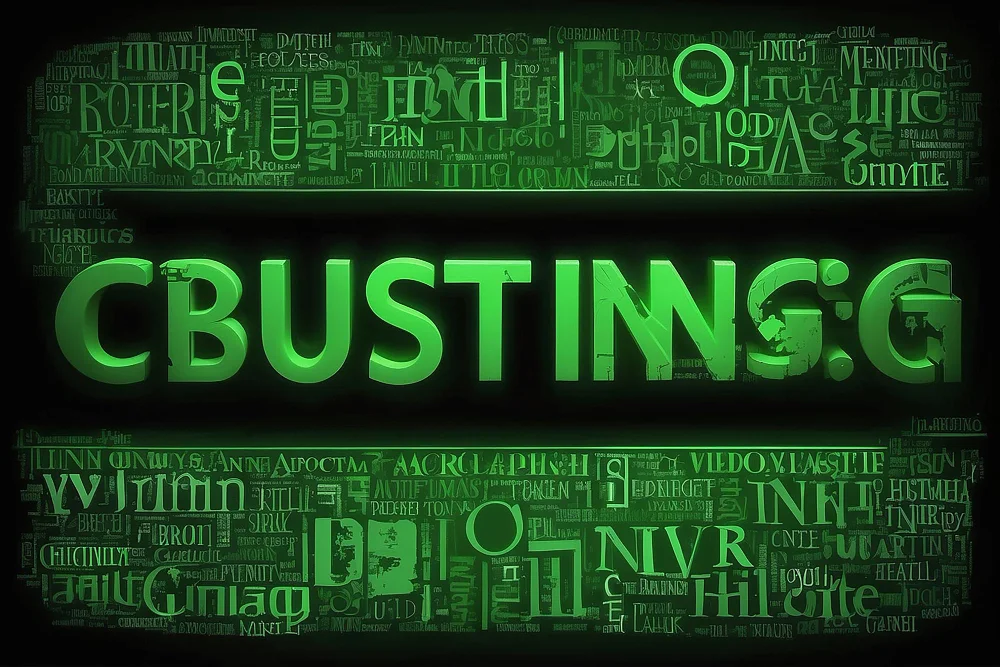Introduction: Why Wordle Mashable Is a Phenomenon
Wordle Mashable has taken the world by storm, becoming a household name in the digital space. Whether you’re solving the puzzle alone or comparing scores with friends, Wordle’s appeal is undeniable. The game, which challenges players to guess a five-letter word within six attempts, offers a perfect balance of simplicity and complexity. But it’s not just the gameplay that has drawn millions of people in; it’s also the way platforms like Mashable have chronicled its rise. From its humble beginnings to its cultural impact, Wordle Mashable is more than just a game; it’s a digital phenomenon.
The Origins of Wordle and Mashable’s Role in Its Popularity
Josh Wardle, a software engineer, initially created Wordle Mashable as a private game for his partner, without any intention of it becoming a global sensation. Little did he know that his simple, minimalist design would ignite a worldwide obsession. After launching the game to the public in late 2021, it quickly became a viral success, fueled by social media and word-of-mouth.
Mashable, a leading digital platform known for its insightful tech coverage, was among the first to recognize Wordle’s potential. They didn’t just write about the game; they captured its essence and explained what made it so captivating. Mashable’s coverage was instrumental in Wordle’s growth, highlighting not just the gameplay but also the cultural shifts it inspired.
Gameplay Mechanics: What Makes Wordle Addictive?
The beauty of Wordle Mashable lies in its simplicity. The game follows a straightforward format: players have six attempts to guess a five-letter word. With each guess, players are given feedback in the form of colored tiles: green for correct letters in the correct positions, yellow for correct letters in the wrong positions, and gray for incorrect letters. This feedback system turns each guess into a puzzle of its own, as players use deductive reasoning to narrow down the possibilities.
The lack of pressure and its daily challenge format make Wordle a highly addictive game. Players return every day for a new puzzle, eager to test their skills and share their results with friends. Mashable has been quick to highlight the appeal of this simple yet challenging gameplay, calling it “easy to learn, hard to master.”
The Role of Mashable in Chronicling Wordle’s Journey
Mashable has played a crucial role in documenting Wordle Mashable’s success. Their detailed articles analyzed the game’s mechanics, cultural impact, and even the psychological aspects behind its popularity. As the game evolved, Mashable continued to provide insight into how it captivated the world. For example, Mashable explored how the game’s minimalist design contrasted with today’s ad-heavy, over-complicated apps, positioning Wordle as a refreshing alternative.
Wordle’s Impact on Popular Culture
Wordle quickly became a part of everyday conversation. Whether in the office, at home, or online, people began sharing their results, sparking discussions about strategy, success, and failure. The game wasn’t just for puzzle lovers; it became a social experience. Mashable delved into how Wordle Mashable had united people across various platforms, from Twitter to Facebook, with users posting their results and engaging in friendly competition.
Wordle’s appeal also lies in its simplicity. Unlike other games that demand a significant time commitment or complex instructions, Wordle Mashable could be played in just a few minutes. This ease of access made it a perfect fit for today’s fast-paced, attention-deficit culture.
Game Psychology: Why We Love Solving Wordle Puzzles
The success of Wordle Mashable can be partially attributed to the psychology behind the game. Research shows that people are naturally drawn to puzzles that challenge their problem-solving abilities but don’t overwhelm them. Wordle’s limited attempts and daily puzzle structure make it psychologically rewarding. When players solve the puzzle, they experience a sense of accomplishment and a dopamine rush. If they don’t, there’s always the next day’s challenge.
Mashable has emphasized the cognitive benefits of playing Wordle. Solving puzzles improves mental agility, boosts memory, and sharpens problem-solving skills. These psychological elements explain why Wordle Mashable continues to captivate its audience. It’s more than just entertainment; it’s a daily exercise for the brain.
Wordle as a Community Builder
Another aspect that makes Wordle Mashable so captivating is its ability to bring people together. The game is more than just a solitary activity; it’s a shared experience. Players post their results on social media, compare their guesses with friends, and bond over the challenge. Mashable has often pointed out how Wordle has created an informal yet tight-knit global community.
This sense of belonging has helped maintain the game’s popularity. Even when a player misses a word or gets frustrated, the support from others within the community provides encouragement to try again. Wordle has become an essential part of many people’s morning rituals, connecting friends and families across the globe.
Lessons in Minimalism: How Wordle Redefined Game Design
Wordle Mashable also stands out for its minimalist design. In an era where many games are loaded with ads, in-app purchases, and complicated mechanics, Wordle offers something simple: a clean, ad-free interface with one daily puzzle. The game’s aesthetic is designed to be intuitive, allowing players to focus entirely on the puzzle.
Mashable’s coverage often reflects on how Wordle’s design choices contrast with the oversaturation of modern mobile games. Its no-frills approach has been celebrated as a return to the basics, reminding people that simplicity can often be the most effective solution.
How Wordle Mashable Boosts Vocabulary and Cognitive Skills
Many players have reported an improvement in their vocabulary and cognitive skills from playing Wordle Mashable. The game encourages players to think outside the box and rely on their vocabulary knowledge to guess the correct word. It also challenges them to use logic and deduction to rule out incorrect options. Mashable highlighted this aspect, noting that Wordle offers a fun way to sharpen mental faculties without the pressure of traditional learning methods.
Comparison with Other Viral Word Games
While Wordle Mashable has dominated the scene, other word games have tried to capture similar success. Games like “Jotto” and “Guess the Word” have existed for years, but none have gained the same level of attention. Mashable explored why Wordle Mashable succeeded where others failed. It all comes down to timing, simplicity, and the game’s social aspect. Unlike most word games, Wordle integrates seamlessly into social media, allowing players to share their results easily.
Mashable also compared Wordle Mashable with other viral games like “TikTok” or “Candy Crush,” pointing out how Wordle’s viral growth was powered more by social interaction than traditional advertising campaigns.
The Role of Social Media in Wordle’s Growth
Social media played a crucial role in Wordle’s rise to fame. Mashable explored how platforms like Twitter, Facebook, and Instagram became the main channels for people to share their scores. The visual appeal of the colorful Wordle grids, showing players’ success or failure, made it irresistible for non-players to join in. The fear of missing out (FOMO) drove many to search for the game and experience it themselves.
Mashable emphasized how Wordle Mashable leveraged social media not just for user engagement, but also as a powerful marketing tool. The more people shared their grids, the more others were intrigued. Wordle became a social event in itself, generating conversations and even memes that added to its cultural cachet.
Challenges Facing Wordle After the NYT Acquisition
In 2022, The New York Times acquired Wordle Mashable, causing some concern among players. Would the game change? Would ads appear? Mashable’s coverage of this transition highlighted the uncertainty and the potential consequences. However, the Times kept the game largely the same, preserving its simplicity and accessibility.
Mashable’s ongoing analysis praised the Times for maintaining Wordle’s core ethos. The acquisition demonstrated the game’s value, not just as a puzzle, but as a cultural asset that could continue to thrive in a more commercialized environment.
Future of Wordle Mashable: What’s Next?
As Wordle Mashable continues to evolve, its future remains uncertain. Could the game eventually introduce new features or challenges? Will more spin-offs emerge? Mashable has speculated about the future of Wordle, suggesting that while the game’s core will remain unchanged, new innovations could emerge to keep the game fresh and exciting for both new and returning players.
Mashable’s coverage will undoubtedly continue to track Wordle Mashable’s journey, ensuring that players remain informed and engaged.
Expert Tips for Mastering Wordle Puzzles
To succeed at Wordle Mashable, players need more than just luck. Expert players know that starting with vowels or common consonants can help narrow down options quickly. They also suggest paying attention to letter patterns, as this can reveal potential word choices.
Mashable compiled expert tips on improving Wordle gameplay, suggesting that players avoid repeating guesses and consider uncommon word combinations to increase their chances of success.
Conclusion: Why Wordle and Mashable Are a Match Made in Digital Heaven
Wordle Mashable isn’t just a game; it’s a cultural phenomenon that has captivated millions. Through its clever gameplay, minimalist design, and cultural impact, it has become a daily ritual for many. Mashable’s ongoing coverage has played a pivotal role in shaping the game’s journey, providing readers with insights into why Wordle has become such a beloved pastime.
Whether you’re solving it alone or sharing your results with friends, one thing is clear: Wordle Mashable is here to stay, and Mashable will continue to be at the forefront of documenting its impact.


